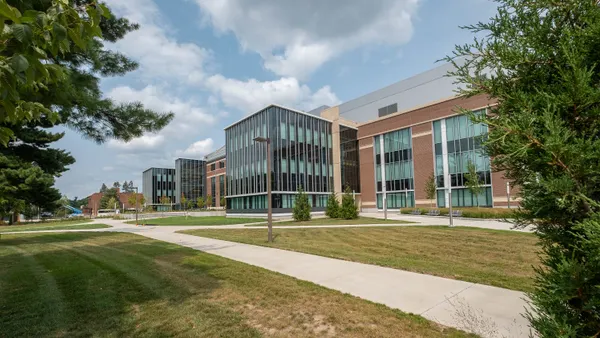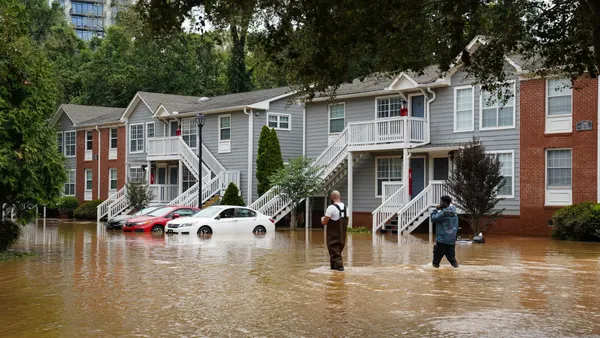UPDATE: This article has been updated based on changes to the source article clarifying that the related study by the University of Texas at Austin and the U.S. Green Building Council covered homes only in the greater Austin, TX, metro area.
Dive Brief:
-
In the greater Austin, TX, metro area, building single-family homes to LEED standards increases their resale value by an average of $25,000 compared to non-LEED homes, according to a new study by the University of Texas at Austin and the U.S. Green Building Council.
-
Area homes built to LEED between 2008 and 2016 saw an 8% increase in value, while homes built to more general green standards experienced a 6% rise. Texas has more than 6,890 homes currently certified or pursuing certification.
-
The data used for the study showed the average Texas home priced at $311,000, though the study looked specifically at more than 3,800 green homes to determine the green-building premium.
Dive Insight:
Sustainability is on the rise across the construction industry. In the residential market, green-construction spending is projected to increase from $55 billion in 2015 to $100.4 billion in 2018, according to the USGBC’s 2015 Green Building Economic Impact Study.
Houston-based developer Scott Frankel says consumer demand is driving the trend. Frankel, who is co-president and principal of the Frankel Building Group, told Construction Dive that the company has designed its custom-built homes to LEED since 2010. Since they first started working with LEED, he said, the certification as gone from something people were simply interested in to something people — including clients and manufacturers — are demanding.
A large part of the trend stems from an increasing desire among younger, first-time buyers for sustainable homes. Frankel expects that interest to grow. “They want a house they can feel good about because it’s creating less of an [environmental] imprint,” he said.
Frankel is in good company. In a recent survey of real estate agents by the National Association of Realtors, more than half of respondents said buyers were interested in energy efficiency as it relates to their homes. As sustainability gains favor in residential and commercial projects, the related municipalities, owners and AEC professionals are beginning to shift toward renewable energy sources, sustainable building products and environmentally friendly construction and building management practices.
Solar energy, especially, has been gaining favor in the residential market as the price of photovoltaic systems declines and companies like Tesla and newcomer Forward Labs introduce new designs that address one of the technology’s biggest hurdles yet: aesthetics.
Homes outfitted with solar have been found to sell 20% faster and for 17% more, on average, than neighboring homes without such capabilities. More still, a stronger push to reach net-zero energy by an increasing number of U.S. cities will drive the residential market toward greater sustainability.













